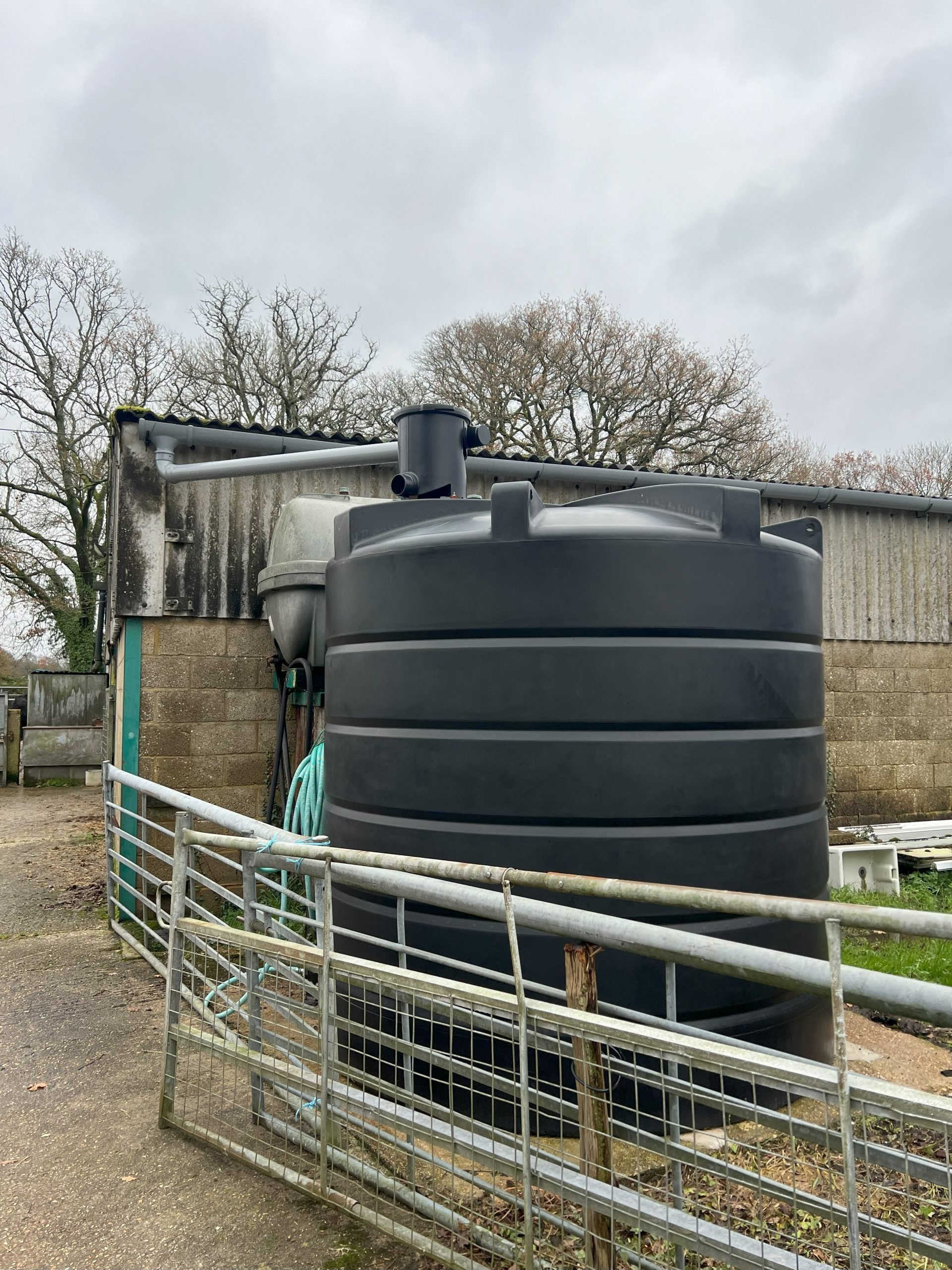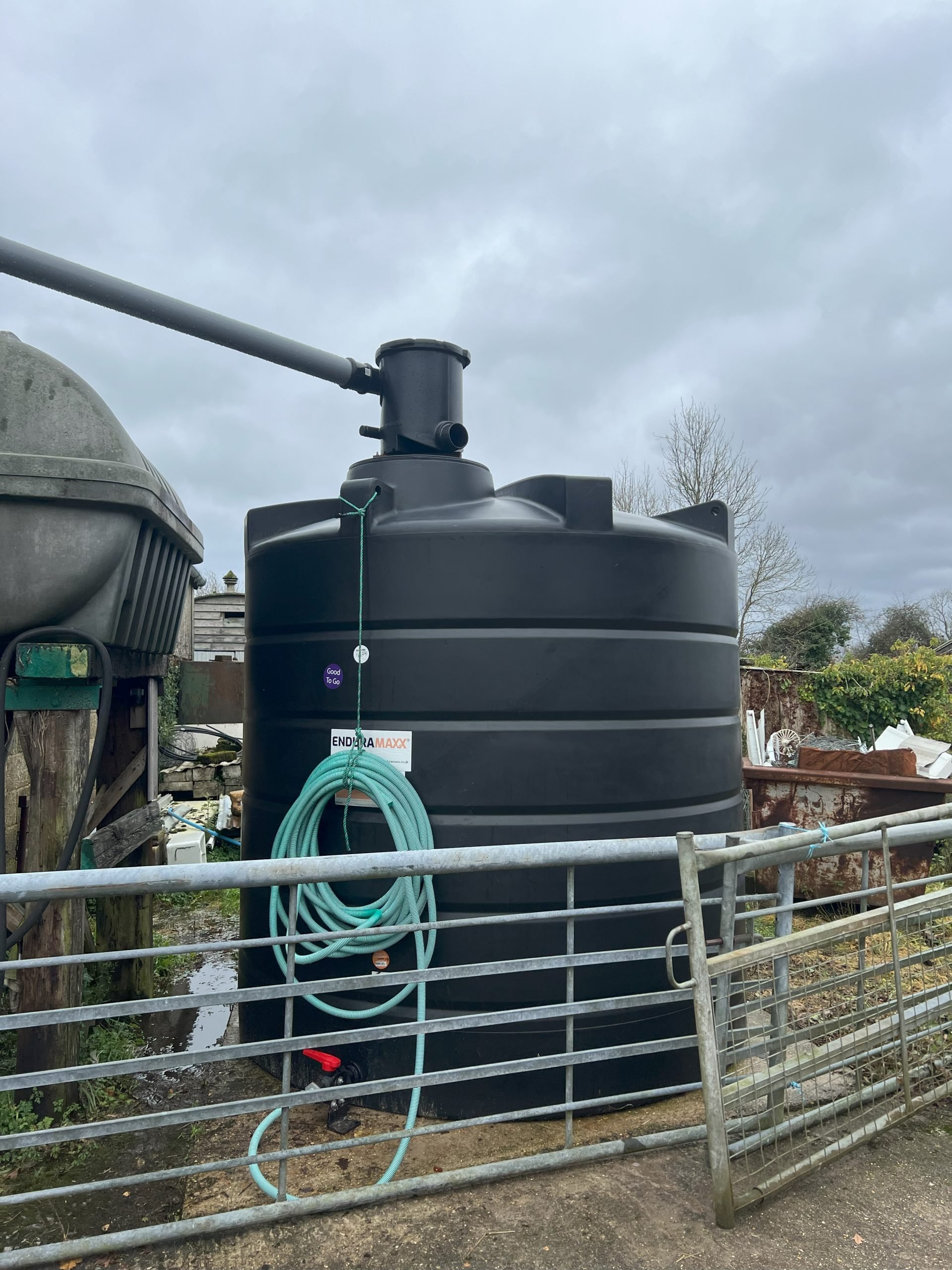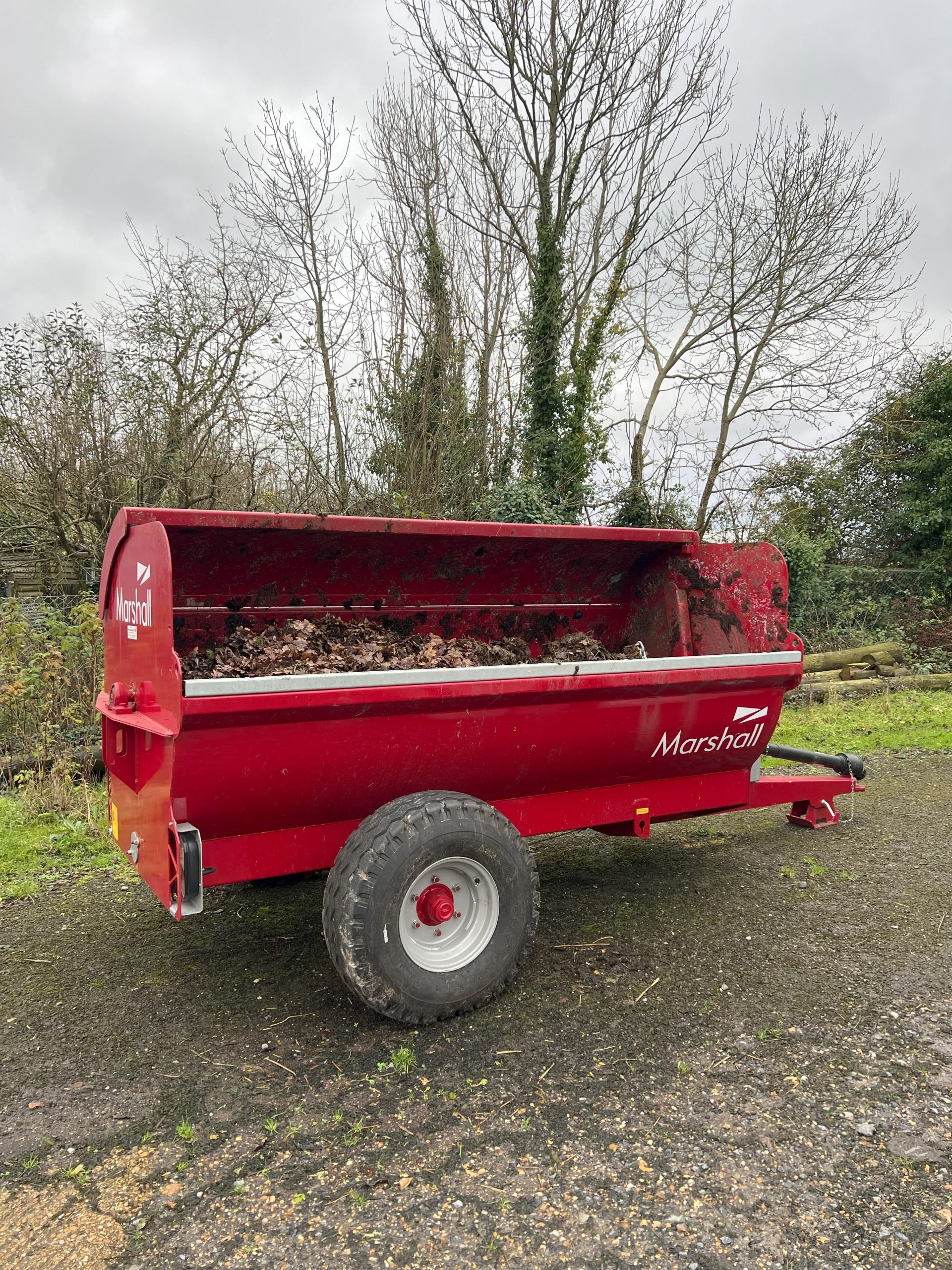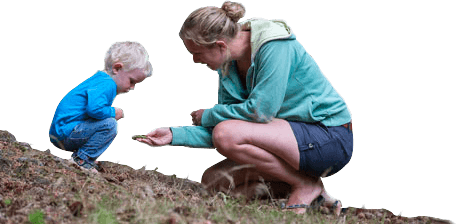Holly Farm – Copythorne
Eddie Hickman manages Holly Farm in Copythorne along with his cousin David. The family farm supports small-scale beef production with a variety of cattle breeds. Through the Farming in Protected Landscapes (FIPL) grant and the New Forest Water Resilience Scheme, Eddie has been able to boost the farm’s productivity whilst also reducing its environmental footprint.
One of the most recent improvements at Holly Farm is the installation of a 10,000-litre water storage tank, supplied through the New Forest Water Resilience Scheme. Positioned next to the cattle sheds, the tank captures non-potable rainwater to meet the needs of Eddie’s cattle.



Since installing the tank, Eddie has significantly reduced his reliance on mains water, which is currently sourced from the dwindling resources of local chalk streams. He anticipates a reduction in his water bill as a result, which is currently £1.90 per cubic metre.
Eddie Hickman says: ‘These cows drink litres of water a day. So, if it keeps raining, we save financially on the cost of water. It’s a good all-round scheme and helps everyone by reducing the use of water which is a precious resource.’
Eddie has also found that using stored rainwater instead of mains water has reduced the farm’s environmental footprint by preventing nitrate runoff from the guttering into the fields. This decrease in harmful chemical runoff will contribute to a cleaner local water supply and support healthier soils in the surrounding fields.
Another major upgrade at Holly Farm was the acquisition of a Marshall Muck Spreader, funded through the FIPL grant. The trailer ensures even distribution of manure across the farmland, promoting efficient nutrient recycling and improving soil health. Eddie has been able to reduce his reliance on synthetic fertilisers, which saves him money while also cutting greenhouse gas emissions.
Eddie Hickman says: ‘We received the new Marshall dung spreader about a year ago, which helps us save on the cost of fertiliser. We have been able to spread our own dung which saves fertiliser, prevents nitrate runoff, and saves us money. It’s good all round really.’

